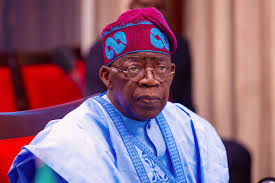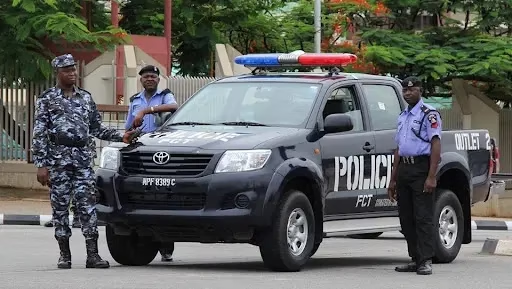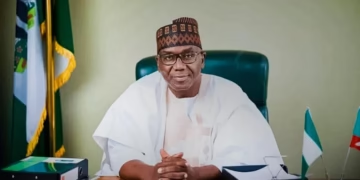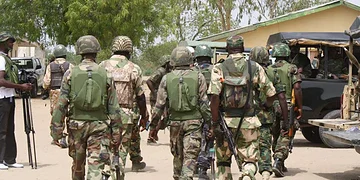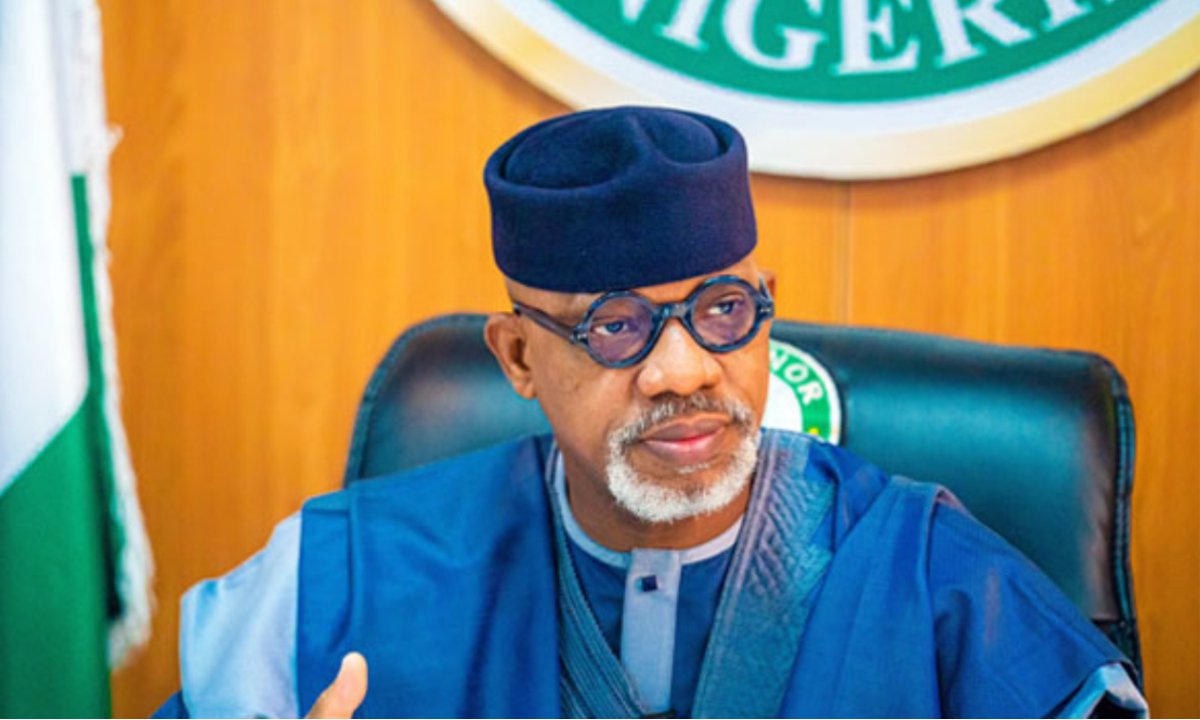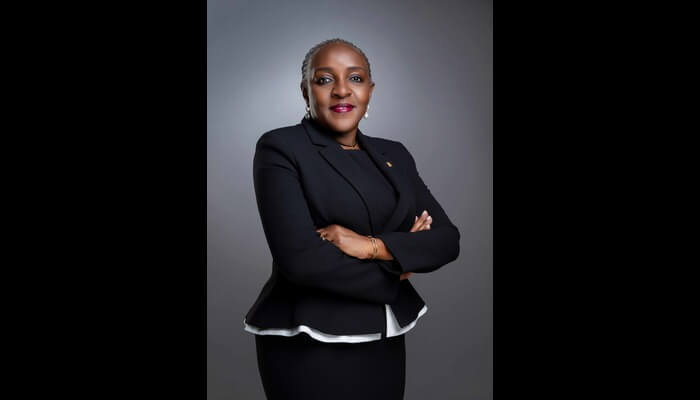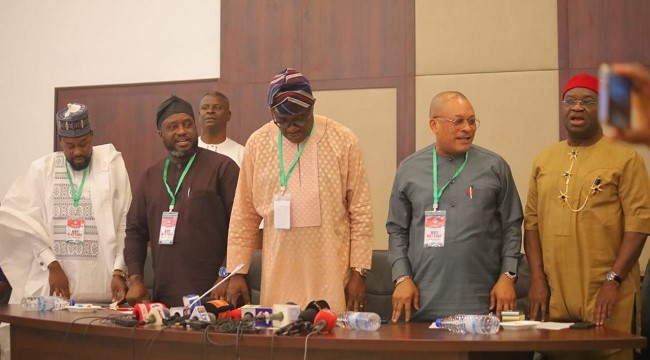President Bola Ahmed Tinubu advocates for an urgent constitutional overhaul to establish state police, calling it a “national imperative” to tackle Nigeria’s deepening security challenges, and stresses the need for decentralised, community-based policing
[dropcap]P[/dropcap]resident Bola Ahmed Tinubu has called for an urgent overhaul of Nigeria’s security framework through constitutional reform, declaring that the establishment of state police is no longer optional but a “national imperative” necessitated by the country’s deepening security challenges.
Also read: Infrastructural rebirth at Lagos State Police Command – Applause for IGP Kayode Egbetokun
Speaking on Monday in Abuja during a one-day legislative dialogue on constitutional review and national security architecture, organised by the House Committee on Constitution Review in collaboration with the Office of the National Security Adviser (ONSA), President Tinubu, represented by the Minister of Defence, Mohammed Abubakar Badaru, emphasized that the current centralised security system has outlived its usefulness.
He warned that failure to realign the Constitution with Nigeria’s lived realities poses a grave threat to national unity.
“The debate over state police is no longer theoretical. It is grounded in the daily fears and lived anxieties of Nigerians: farmers afraid to tend their fields, traders unsure of safe passage, and communities abandoned to self-help,” Tinubu stated.
The President described Nigeria’s 1999 Constitution as foundational to its democracy but outdated in dealing with modern security threats.
He cited the rising complexity of terrorism, cybercrime, farmer-herder conflicts, piracy, and separatist agitations as clear indicators that the current legal framework is inadequate to secure Nigeria’s vast and diverse territory.
“The pace of change in technology, in the complexity of security threats, and in the dynamics of our federal structure has far outstripped the capacity of some constitutional provisions. Our Constitution must evolve or risk becoming a danger to the very unity it was meant to protect,” he said.
Tinubu called for bold constitutional amendments that would move policing from the Exclusive Legislative List to the Concurrent List, thereby enabling states with the capacity and political will to establish their own police forces.
He argued that such a move would ensure more accountable, community-based policing while preserving federal coordination and oversight.
“We must learn from global best practices, adapting decentralised policing models that enhance local accountability without sacrificing national oversight,” the President noted.
This position adds federal weight to growing calls from governors, traditional leaders, and civil society for state police as a solution to Nigeria’s overstretched and often underperforming security agencies.
In his address, President Tinubu acknowledged recent gains made through enhanced coordination among national security agencies, particularly the synergy between ONSA and the armed forces.
He highlighted that joint task force operations, intelligence fusion, and synchronised air and ground offensives have led to the dismantling of terrorist camps in the North-East and criminal enclaves in the North-West.
He added that improved maritime security had reduced piracy in the Gulf of Guinea and curbed high-profile kidnappings and bandit attacks, thanks to what he described as a “whole-of-government strategy.”
“Security in the 21st century is cooperative, not competitive. No single agency or tier of government can address these threats alone,” he stressed.
Beyond internal reforms, the President also highlighted Nigeria’s porous borders as a major threat to national security, facilitating arms trafficking and cross-border terrorism.
He stated that the Constitution must clarify the roles of federal and sub-national actors in securing Nigeria’s frontiers.
The pace of change in technology, in the complexity of security threats, and in the dynamics of our federal structure has far outstripped the capacity of some constitutional provisions. Our Constitution must evolve or risk becoming a danger to the very unity it was meant to protect.
Tinubu affirmed his administration’s proactive steps to secure vulnerable populations, particularly schoolchildren, with the establishment of the National Safe Schools Response Coordination Centre.
He also pointed to the approval of community policing frameworks aimed at narrowing the trust gap between citizens and law enforcement.
“These efforts must be complemented with structural changes. Without constitutional backing for decentralised policing, these initiatives will remain limited in impact,” he warned.
The President charged the National Assembly, particularly the House Committee on Constitution Review led by Deputy Speaker Benjamin Kalu, to act with urgency and courage in pushing through security-focused amendments.
“None of these reforms will materialise without legislative courage and political will,” Tinubu declared. “Let history record that in this chamber, on this day, Nigeria’s leaders chose courage over caution, vision over fear, and reform over inertia.”
Speaker of the House of Representatives, Abbas Tajudeen, lauded the dialogue as timely, given the urgent need to review and update existing laws to address current and emerging security threats.
He stated that Nigeria’s complex security landscape demands strategies that are “multi-dimensional, inclusive, technology-driven, and adaptable,” anchored in a solid legal and institutional framework.
“The goal is to reposition the security architecture to effectively confront insecurity. This dialogue also allows us to refine proposed security-related bills, including the one seeking to establish state police,” Abbas said.
He highlighted the prevalence of terrorism, banditry, piracy, militancy, and oil theft across regions, stressing the House’s commitment to taking practical legislative steps.
Deputy Speaker and Chairman of the Constitution Review Committee, Benjamin Kalu, described the dialogue as a necessary diagnostic process, noting that previous security legislation often lacked adequate input from frontline operations.
“As legislators, we must base our reforms on accurate diagnoses. We are here to listen to those who wear the shoes and know where it pinches,” Kalu remarked.
Chief of Defence Staff, Gen. Christopher Musa, also called for urgent legal and constitutional reforms to address emerging threats like cyber warfare, hybrid threats, and insurgency.
He described the current legal framework as increasingly inadequate, highlighting operational ambiguities such as unclear command authority and detention procedures that hamper effectiveness during internal operations.
Gen. Musa proposed key reforms, including amending the Armed Forces Act and relevant constitutional provisions, establishing field and standing court martials in all military commands, and constitutionally recognising courts-martial as superior courts of record.
He also advocated for empowering the military to investigate and detain suspects during internal operations, authorizing the Nigerian Navy to collaborate with Customs and Immigration on inland waterways to combat piracy and smuggling, and introducing a merit-based nomination process for the appointment of service chiefs.
He further proposed legal provisions to enable courts-martial to try individuals captured in acts of terrorism or insurrection under martial law conditions.
“Security is not just about military hardware; it’s about legal clarity, institutional strength, and public trust,” Gen. Musa concluded.
National Security Adviser, Nuhu Ribadu, represented by the National Coordinator, National Centre for Anti-Counter Terrorism, Maj. Gen Adamu Laka, emphasized that a responsive, inclusive, and forward-looking constitution is essential for fostering national unity and addressing the root causes of insecurity.
“The Constitution must evolve to reflect the hopes and challenges of Nigerians. Addressing grievances, protecting rights, and fostering trust between citizens and the state are all constitutional imperatives,” Ribadu stated.
He commended the National Assembly for initiating the dialogue and called for constitutional reforms that decentralize service delivery, strengthen institutions, and promote more effective governance.
Also read: Federal Government and State Governors to decide on state police creation next week
“As we deliberate today, let us remember that constitutional reform is not just about structure—it’s about the survival, stability, and sovereignty of our Republic,” he added.
Source: Read more at tvcnews.tv


